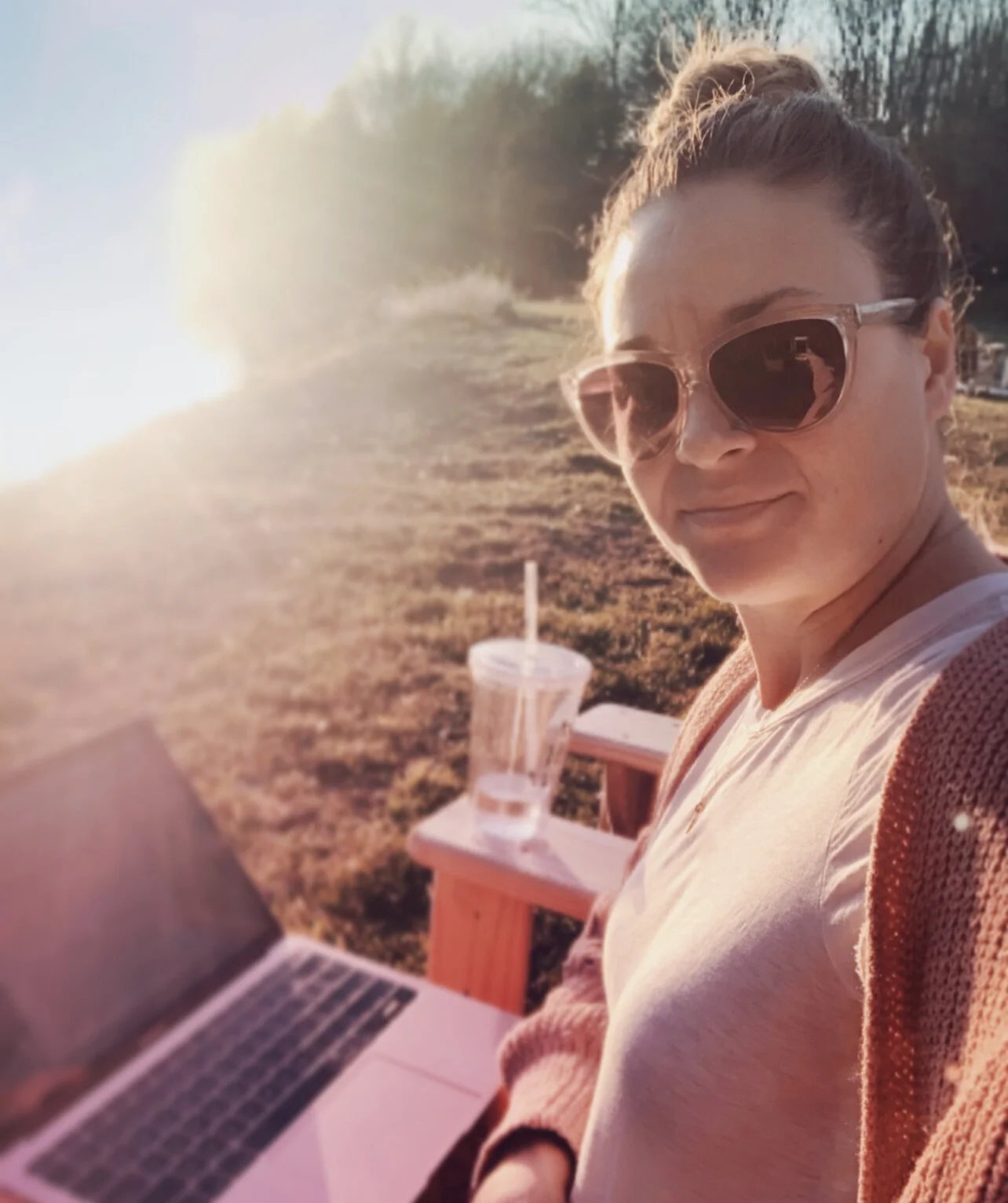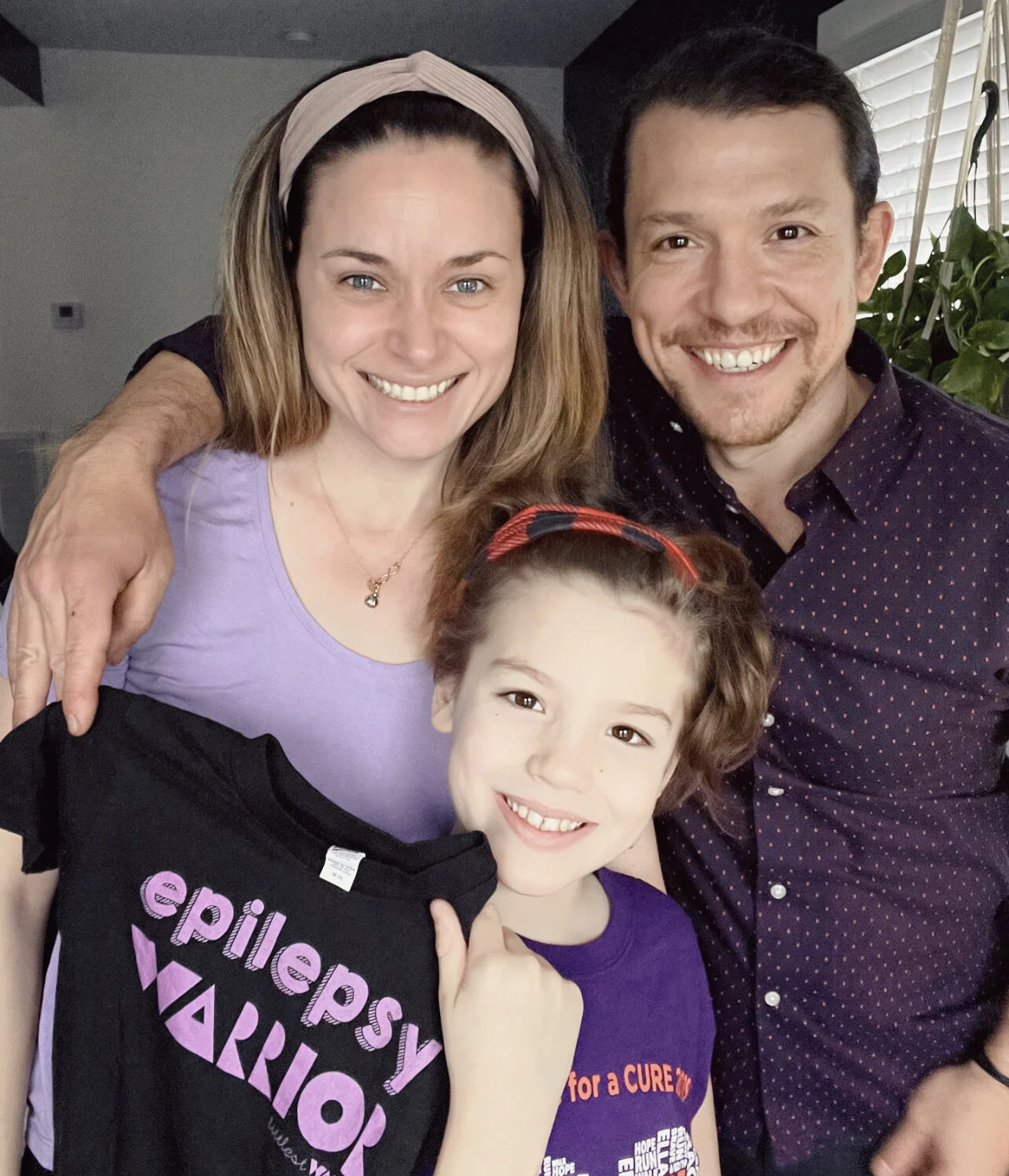Bold and benevolent
I came across Nikki McIntosh’s Instagram page @Rare_Mamas and was immediately drawn to her story, compassion and advice. Her son, Miles, was diagnosed with SMA (spinal muscular atrophy) when he was 18-months-old. Since then she has made it her mission to share everything she has learned as the mama of a rare disease kiddo with those that are newly diagnosed, searching for a diagnosis, or perhaps are jaded by the entire medical system and could use a mindful reset. So much of what we learn while parenting a child with disabilities can be applied to typical life as well. Nikki’s practice of being “bold and benevolent” is the perfect example — but enough from me, how about I let Nikki explain it to you…
Advocating for our children is an important part of parenting. We are our child's voice and their representation. While I always knew this to be true, it was reinforced on a level I never imagined when my second son was diagnosed with a rare, degenerative, and life-threatening neuromuscular disease. Advocating on behalf of my son became a vital necessity to maintaining his health and even saving his life.
Having a child with a disability has required our family to rely on various providers and services, including care from medical specialists, funding from insurance companies, services from our school district, and programs from our state government. If only it could be so easy as to tell these providers what your child needs and then receive it. Sadly, sometimes this isn't the case. It's not uncommon to hit roadblocks. It's not unusual to be faced with lengthy paperwork, appointments, evaluations, and then delays. It's not surprising to receive denials. It's the reality of this jungle.
Now, I'm typically a pretty calm and even-keeled person, but these difficulties would trigger an animal-like instinct and response within me. They would well up a raw, emotional reaction of a mama not getting what she needs for her cub. I would feel my blood pumping, my fangs dripping, and my claws engaged. I felt the injustice of it all. How can they do this?
I had to learn to calm myself down, punch the pillow, go outside and howl at the moon, and then put on my rational, logical, emotion-free, advocate hat and get to work.
I had to learn to advocate effectively. Because guess what? No one else was going to, and my child's life was depending on it. I'm not saying that to sound bleak, but it was a wake-up call for me. I thought the system was different. I thought someone else would do it. But the truth is that this one falls on us as parents. I do believe that doctors, experts, school staff, and therapists are all trying their best to advocate for our children, but there are too many patients, students, and clients for the responsibility to fall only on them. We are the parents, and not only is it our job and our right to advocate, but it's often downright critical.
I have faced many-a-reason to advocate along my path. I have had a pediatrician tell me that my son was fine and that nothing was wrong. I have had a physical therapist tell me that I needed to accept my son's limitations and the hopelessness of the future. I have had an insurance company deny a piece of vital equipment because they deemed it medically unnecessary. I have had a school administration tell me that my son didn't need the services he rightfully deserved. I have had state programs put my son on years-long waiting lists to receive care that he should have received immediately. I have had so many things said and done that if I simply accepted them, my son and our entire family would be in a very different place right now.
I've learned, if something doesn't feel right, question it. If something doesn't sound true, challenge it. If something needs to be looked at again, request it. Don't be afraid to ask questions. Don't be afraid to disagree. Don't be afraid to dispute denials. Speak up. Ask. Act.
So here's the thing about advocating: it's a balance. If we don't ask, we'll never know if we can get what we need, and therefore we'll never get it. But on the other hand, if we just walk around roaring all the time, we may be discounted as aggressive animals. Don't get me wrong, being aggressive gets stuff done, and we all need our stuff to get done. But no one wants to help a contentious animal, and believe me, we're going to need a lot of help along this road. So therein lies the balance that must be found.
The best way I can explain how I learned to advocate was by being assertive but with kindness. I call this "bold and benevolent." If we're shy, we're going to need to find our voice. If we're aggressive, we're going to need to find our diplomacy. I would say I fall on the not-so-shy side of the scale. Oh, mama, this road has roused my emotions and tested my patience like never before. But I've learned to leave my emotions out of it and speak from a place of fact, not emotion. The reason that asking this of us, as parents, is so difficult is that let's be honest, this is emotional. It's our children. It doesn't get more emotional than this! But getting emotional can get in the way of getting our children what they need.
So instead, I ask myself: what are the facts? What are the truths? What will help me build my case? What factual evidence will help back up what I need? I let this factual information be my mouthpiece and empower me to ask for what I need effectively.
When it comes to advocating, I've decided two things: my child will not go in need because I didn't ask for something, and I will not let this journey turn me into someone I'm not. Finding the balance and being bold and benevolent has helped me provide for my child and maintain the person I want to be while doing it.
It's amazing the things you'll learn when you're fueled by love for your child. I've learned to become an effective advocate, and that makes me one proud mama!
Hear more tips from Nikki on her website: www.raremamas.com and follow her on Instagram @rare_mamas and Facebook @Raremamas1.
Nikki and Miles McInstosh




